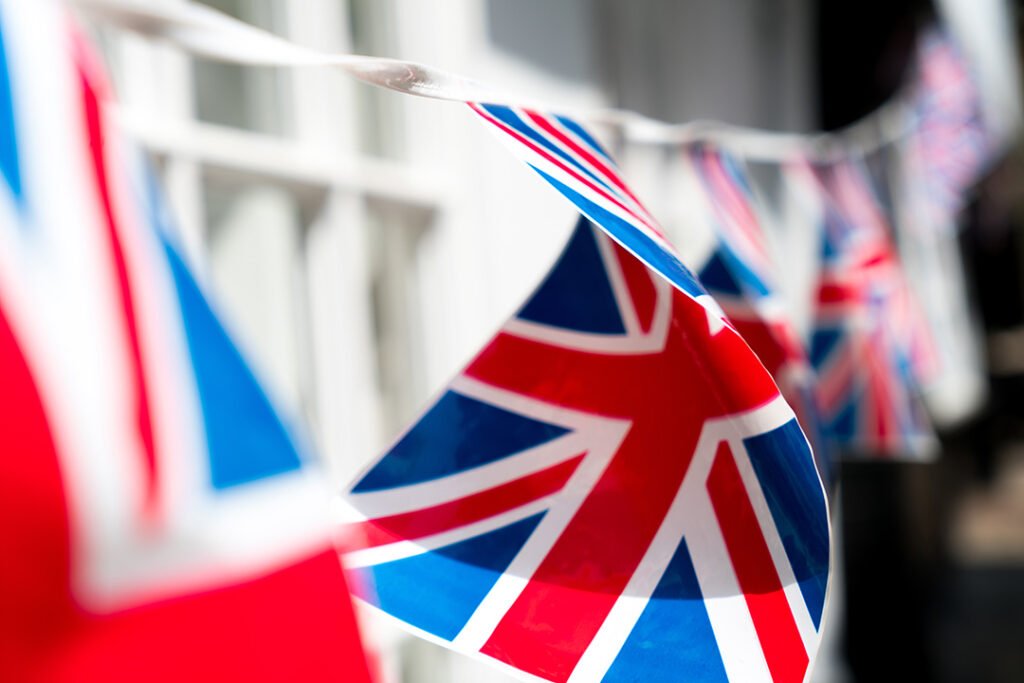Is the British media fueling the ‘us vs. them’ narrative?
Is the British media fueling the ‘us vs. them’ narrative?
Our analyst Muhammad Faisal Khalil looks at Oborne’s critique of British media and how it portrays Muslims as the ‘other’ involved in a clash with the West.
This weekly comment was written by Muhammad Faisal Khalil and reflects his personal analyses and opinions rather than those of EARS.
The clash of civilizations thesis, proposed by Samuel P. Huntington in 1996, suggests that post-Cold War global conflicts would be primarily cultural, particularly between the Western and Muslim worlds. Huntington argued deep-seated differences in values, beliefs, and societal structures would create a fundamental divide between the West and Islam. This idea has profoundly influenced how societies perceive each other, often exacerbating tensions and misunderstanding. Recent media coverage of Muslim communities in Britain, as highlighted by journalists and commentators like Peter Oborne, offers a critical case study to examine this thesis in a contemporary context.
The clash with the ‘other’
Oborne’s critique, often appearing in interviews[1] and his 2022 book, The Fate of Abraham,[2] is that the British media and government’s portrayal of Muslims underscores a broader, unsettling trend where Muslims are often depicted as the ‘other’ — fundamentally different and incompatible with Western values. This narrative is not only misleading but also harmful, reinforcing stereotypes and justifying discriminatory policies under the guise of national security. The smear campaigns against Muslims, purportedly defending Britishness, ironically betray purportedly British values of fairness, tolerance, and inclusivity.[3]
He observes a collaboration between certain media outlets and the government to propagate fear and mistrust towards Muslims. This reveals a deliberate attempt to shape public perception. Oborne’s view is corroborated by research on sensationalist reporting on terrorism that disproportionately focuses on cases where the perpetrators are Muslim.[4]
This strategy is deeply entwined with political and economic motives, and fuels the narrative of an existential threat to the Western way of life from Islam. Such narratives ignore the rich history of interaction and mutual influence between the Western and Muslim worlds, oversimplifying complex relations into a binary conflict.[5]
When Huntington’s thesis is used in policy and media, it reinforces the harmful idea that cultural and religious differences cannot be overcome. This ignores the shared humanity that connects people across different backgrounds. Despite criticism for oversimplifying global politics, the thesis still influences policies that unfairly target and monitor Muslim communities. Oborne explains, “[Huntington’s] ideas continue to resonate with how the US and Europe talk about the world today, shaping not only foreign policy but immigration, economics, and security.”[6]
Perpetuating Huntington’s thesis?
While Oborne offers a compelling case, critics like S. Sayyid from the University of Leeds challenge the narrative proposed in his analysis. Sayyid argues that Oborne’s emphasis on specific conflicts creates a potentially misleading impression of an ongoing and inevitable clash between Islam and the West. This perspective highlights how Oborne’s focus on moments where ‘Islam’ intersects with political narratives in Western societies could inadvertently perpetuate an oversimplified view of the complex relationship between these cultures.[7]
Furthermore, commentator Peter Lewis raises an important critique regarding Oborne’s exploration of Islam itself. Lewis notes that Oborne could have benefited from a deeper exploration of the diverse ways in which Muslims interpret and practice their faith. This suggests a potential limitation in Oborne’s work in providing a fully nuanced perspective on the clash of civilizations narrative.[8]
British Muslims and Britishness
While discussions around integration and belonging are complex, the media and political rhetoric often portray Muslims in a simplistic ‘good’ or ‘bad’ dichotomy. This trend arguably fuels alienation within Muslim communities. Oborne suggests these divisive portrayals stem from colonial-era tactics and create barriers preventing full Muslim integration into British society.
He elaborates on this point, noting a deliberate distortion of Islamic teachings by those seeking to misrepresent the religion. Oborne contends that the Western media’s portrayal of Muslims runs counter to essential British values, stating that “to smear honest, decent people … is un-British.”
The media and political discourse often perpetuate a harmful ‘good’ vs. ‘bad’ Muslim dichotomy, fueling alienation within Muslim communities.[9] Oborne argues this tactic stems from colonial strategies of divide and rule, hindering Muslim integration into British society. This portrayal runs counter to the reality of Muslim life in Britain, as recently shown by Khadijah Elshayyal.[10]
Elshayyal highlights how government reports like the Bloom Review[11] simplify the relationship between faith and public life. It frames Muslims who align with the state agenda as “true believers,” while those who voice dissent or advocate for change are labelled as “make-believers”. This language sets the stage for the exclusion and demonisation of critical Muslim voices.[12]
Oborne further emphasises deliberate distortions of Islamic teachings to misrepresent the religion. He argues that the Western media’s portrayal of Muslims often contradicts British values like fairness and respect.[13] Elshayyal supports this, noting the UK government’s history of prejudice against Muslim civic groups like the Muslim Council of Britain (MCB), often rationalised under the guise of safeguarding against extremism.[14]
Challenging binary narratives
In light of these developments, Peter Oborne believes there is a need to challenge the clash of civilizations thesis and its narratives, advocating for a society that values shared humanity and cultural diversity. He calls for a critical examination of how Muslims are portrayed in media and politics, urging the adoption of policies that encourage integration and respect. By highlighting the dangers of reducing complex identifies into simple binaries, Obrone highlights the importance of embracing diversity and fostering dialogue.
This weekly comment was written by Muhammad Faisal Khalil and reflects his personal analyses and opinions, rather than those of EARS.
Interested in similar topics? Go to our Dashboard.
Sources
[1] NBN Interview: The Fate of Abraham: Why the West is Wrong about Islam by Peter Oborne
[2] The Fate of Abraham | Book by Peter Oborne | Official Publisher Page | Simon & Schuster UK
[3] Why the West is wrong about Islam | Peter Oborne | The Big Picture S3EP15
[4] Amplifying Islamophobic hate crime: UK media in the wake of terror attacks | British Politics and Policy at LSE
[5] Why the West is wrong about Islam | Peter Oborne | The Big Picture S3EP15
[6] Why the West is wrong about Islam | Peter Oborne | The Big Picture S3EP15
[7] Peter Oborne. The Fate of Abraham: Why the West Is Wrong about Islam – ScienceOpen
[8] The Fate of Abraham: Why the West is wrong about Islam by Peter Oborne
[9] Disrupting or reconfiguring racist narratives about Muslims? The representation of British Muslims during the Covid crisis – Elizabeth Poole, Milly Williamson, 2023
[10] Good and bad Muslims: New UK report reinforces a false narrative | Middle East Eye
[11] Government needs to better understand faith, independent review claims – GOV.UK
[12] Good and bad Muslims: New UK report reinforces a false narrative | Middle East Eye
[13] Why the West is wrong about Islam | Peter Oborne | The Big Picture S3EP15
[14] Good and bad Muslims: New UK report reinforces a false narrative | Middle East Eye






